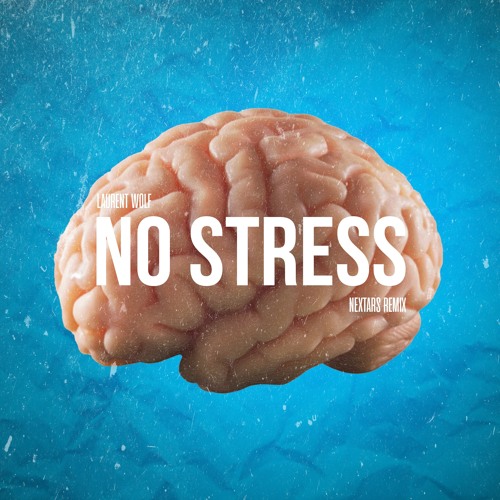(If you have a question for our student advice column, email it to mcsmrampage@gmail.com. Questions are published anonymously.)
Q: What are some activities to do by myself?
1. Go to the park and play a sport, or admire nature. As the weather gets better it’s the perfect time to go outside and visit a park. You can visit your local park or head to a larger park, like Central Park or Flushing Meadows Park. You can simply walk around and admire nature or play a sport that doesn’t require other people.
2. Go on a bike ride. Similar to the last one, the weather is getting better and you can visit a park or ride around your neighborhood. Make sure to be safe!
3. Take on a new hobby. Hobbies are something that you can enjoy by yourself and there are many out there to try. Some hobbies you can take on are photography, drawing, reading, or knitting.
4. Bake a cake. Yes, baking a cake was something that gained popularity during the pandemic, but it’s still fun to do (although cleaning up isn’t). You don’t just have to bake a cake, it could be an apple pie, or brownies.
5. Go on a shopping spree. I recently went to go buy some new clothes and it was honestly entertaining and I spent a whole day at the mall. Of course, not everyone can go and buy a whole lot of clothes in one go, so maybe go out and treat yourself.
6. Do things you wouldn’t normally do in front of others. We often put on a persona whilst we are in front of others so letting ourselves be us is so refreshing. Do you have some secret passion for dancing or singing? Try and let yourself be you by letting yourself go.
7. Walk around your area. We may think we know the area we live in, but we may be surprised to see a store we’ve never seemed to notice. Taking a causal walk around your neighborhood can result in you discovering things about your neighborhood you never seemed to notice.
Q: Any tips on how to destress before AP exams and regents?
Y responds: Exam season, and especially AP examinations, can be a very stressful time for students. Exam stress, such as that caused by AP and regents exams, can have a significant impact on performance. But how do you overcome exam anxiety? During the AP and regents test season, use the tactics listed below to stay cool and put your best foot forward.
– Be Prepared: One of the best ways to keep your anxiety at bay is to be well-prepared. Going into an exam prepared might offer you the confidence that you have put up a strong effort to do well on it. Establish a timeline for covering all of the content well before the day of your test. Revise the material thoroughly, concentrating on the sections that you found more difficult. If you’re having trouble staying motivated, get a study partner. Talking over the topic with someone else may often help you remember and reinforce important concepts.
– Just Breathe: This is very useful on the day of the examination. Use physical relaxation techniques to relieve tension if anxiety levels rise. Take a big breath in and tension your muscles before expelling. Take a mental pause and envision yourself focused and calm if you start to panic while completing the test because you feel stuck or overwhelmed. It’s critical to keep a positive mindset and not give up when coping with AP test stress.
– Eat Well: This cannot be overstated. When I’m anxious, my appetite drops and I lose interest in food. Others are prone to snacking on salty or sugary processed foods as a result of stress. It’s critical to resist temptation and consume a balanced diet. When your brain is properly nourished, it performs at its best!
– Make time for yourself: Overloading yourself with practice tests and study groups isn’t going to help you relax for your AP exam. You must take care of yourself regardless of how well prepared you are or how detailed your study schedule is. Time for learning should be balanced with time for self-care. Get your nails done, take a bath, play a game of basketball—whatever self-care means to you, make it a priority this month.
– Meditate: People who meditate frequently get a poor rap: you’re a hippie, a treehugger, or a monk. However, to meditate, you do not need to be any of these things. Meditation is an excellent approach to put a stop to anxious thoughts while also allowing you to take a breath. Make time in your day before your AP exams to sit down and relax with some breathing exercises or guided meditation.
– Don’t focus on the score: Everyone aspires to get a 5 and 100, which is the best possible mark on any AP exam and regents looks fantastic on college applications. However, it’s crucial not to put earning a flawless mark first in the days preceding up to the tests. Instead of focusing on getting a 5, make it your objective to feel prepared and content with your performance on exam day.
Q: How do I get away from social media for a while in order to focus on my studies?
Z says: While social media can be a great escape from boredom and a huge source of entertainment/ communication, it can also be a distraction. In this case we’re talking about studying. We’ve all been there, working on a project and we picked up our phones for a little break, next thing you know it’s been two hours of continuous scrolling. However, there are some tricks you might want to try to resolve this problem.
1) Place your phone away from you. When our phone happens to be near us we might feel tempted to check it. Having it across the room can prevent this from happening since it won’t be in our sight.
2) Turn off notifications. Let’s say you do need your phone or just simply don’t want it too far from you. In order to focus, turning off your notifications will be the best thing to do. It’ll help you forget your phone isn’t there if there’s no constant buzzing. You can either turn them off in settings, or use “do not disturb”. If anything, you can also log out of your socials for the time being.
3) Set a screen time limit. Doing this will ensure you’re not spending your entire day on these platforms. Once the designated time is up the apps will lock and you’ll be free to place all your attention on your work.
4) Attend study groups. Involving yourself in these activities can help you concentrate and even get help from your peers. When we’re working collectively it can be easier to forget about social media, since we’ll be accompanied by others. It would also be rude to be on your phone the entire session.
5) Create a schedule. Though we may say that we’ll no longer be on social media, a lot of us can’t handle the temptation. It’ll be a good idea to use social media at times that are appropriate. Therefore, not in the middle of studying or research. It can be during a 5 minute break, during lunch, walking the dog etc. Plan out the times you’ll have time to open social media.


